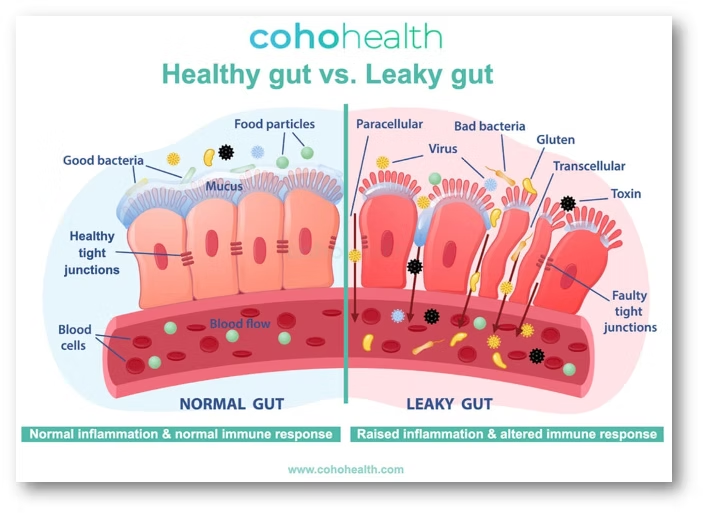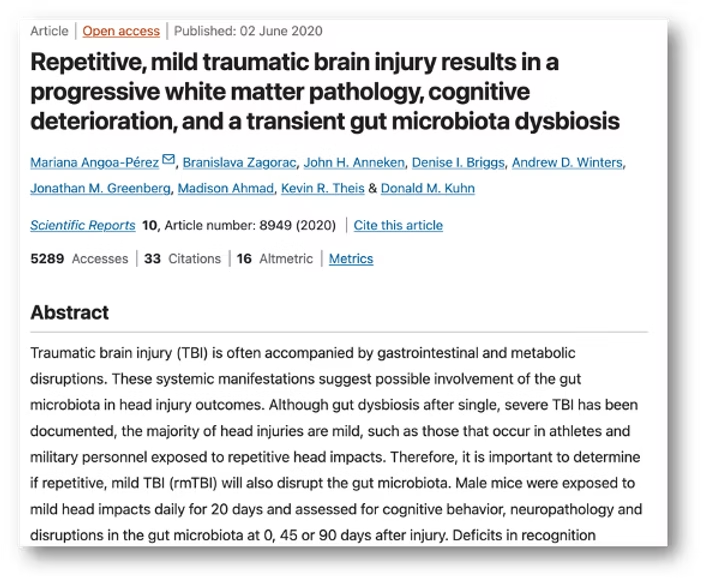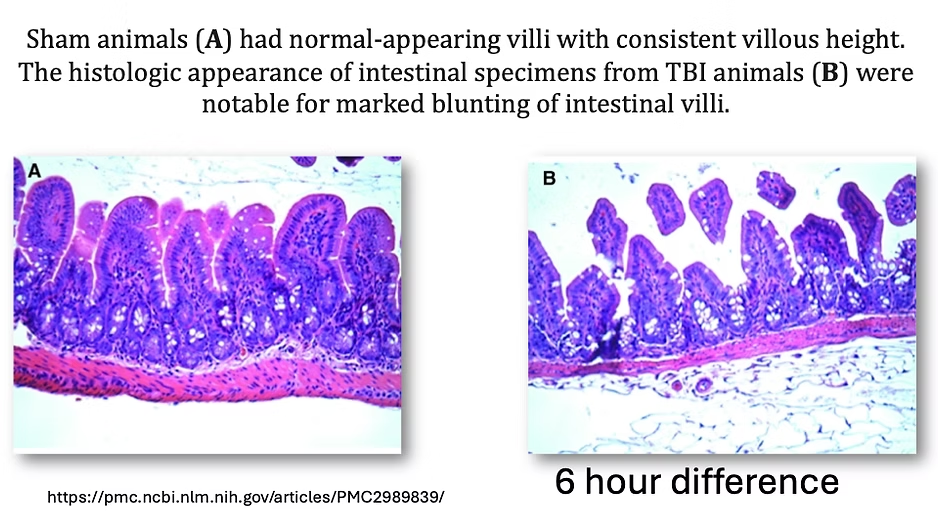Did you know that even a small bump on the head could lead to serious health issues years later? We’re not just talking about major concussions where you’re knocked unconscious. Any mild traumatic brain injury, like a fall on ice, a minor car accident, or heading a soccer ball repeatedly, could trigger long-term problems.
Signs of Brain Inflammation and Its Connection to Chronic Orthostatic Intolerance
If you experience symptoms like dizziness, nausea, shaking, or mysterious neurological problems that no one seems to explain, your brain might be inflamed. This inflammation can cause conditions such as chronic orthostatic intolerance, dysautonomia and anxiety, and even dysautonomia and fibromyalgia.
The Brain-Gut Connection: Autonomic Nervous System Disorders and Gut Health
The brain and gut are in constant communication. When your brain suffers from even a mild injury, it can cause dysautonomia, a disruption in your nervous system that affects everything from digestion to immunity.
Conditions like POTS (Postural Orthostatic Tachycardia Syndrome) and neurocardiogenic syncope are linked to disruptions in the autonomic nervous system. These disorders can lead to symptoms such as:
- Gut inflammation
- Poor digestion
- Irregular heart rate
- Light sensitivity
The vagus nerve, the longest nerve in your body, plays a huge role in this connection. Starting in the brainstem, it travels down to your lungs, heart, liver, pancreas, and intestines. When your brain is inflamed or injured, it can disrupt this nerve’s function, causing symptoms like dysautonomia and chronic fatigue, dysautonomia and light sensitivity, and gut-related problems.
Your gut lining is only one cell thick—think of it as a fragile barrier keeping bad stuff out of your bloodstream. When your brain is injured, this barrier can break down.
What Happens with Leaky Gut?
- Toxins and bacteria from your gut cross into your bloodstream.
- This can cause inflammation throughout your body, leading to symptoms like bloating, diarrhea, or fatigue.
- Over time, this can even trigger autoimmune diseases and affect your heart rate.
Research backs this up. Studies on mild traumatic brain injuries (mTBIs) show:
- mTBIs cause gut microbiome imbalances, leading to bacterial overgrowth and inflammation.
- Brain injuries increase intestinal permeability, allowing harmful substances into the bloodstream.
How to Protect Your Brain and Gut from Dysautonomia and Anxiety
If you’ve had any sort of head trauma, it’s essential to take action now. Ignoring these issues could lead to long-term damage.
Steps to Heal Dysautonomia, Gut Health, and Chronic Fatigue
- Identify Symptoms: Watch for signs like brain fog, digestive issues, or unexplained neurological problems.
- Seek Functional Testing: Conventional tests may miss the connection. Functional medicine can pinpoint the root cause.
- Strengthen Your Gut: Focus on healing your gut lining with:
- Nutrient-rich foods
- Supplements like probiotics and magnesium
- Reducing stress to calm your vagus nerve
- Exercise Your Brain: Brain exercises and therapies can help reduce inflammation and restore function.
Take Action Against Dysautonomia and Chronic Orthostatic Intolerance
If you’re dealing with gut issues, brain fog, or symptoms no one has been able to explain, don’t wait. Reach out to a provider trained in functional medicine and neurology. The connection between your brain and gut is too critical to ignore.
Learn More About Dysautonomia and Light Sensitivity
Final Thought
Mild brain injuries might seem like no big deal at the time, but their effects can linger for decades. The good news? With the right knowledge and care, you can heal both your brain and gut and live a healthier, happier life. Start your journey to recovery today.
Frequently Asked Questions (FAQ)
A mild traumatic brain injury (mTBI) can cause brain inflammation that disrupts the autonomic nervous system (dysautonomia). This disrupts the vagus nerve, which is crucial for gut function. The resulting nervous system imbalance can lead to a breakdown of the gut lining ("leaky gut"), allowing toxins into the bloodstream and causing widespread inflammation and digestive issues.
Dysautonomia is a disruption of the autonomic nervous system, which regulates involuntary functions like heart rate, digestion, and the stress response. When an injured brain causes dysautonomia, it can manifest as a constant state of "fight or flight," leading to symptoms commonly diagnosed as anxiety or fibromyalgia, such as heightened sensitivity, pain, and fatigue.
Symptoms can be neurological, digestive, and systemic. They include dizziness, nausea, brain fog, chronic fatigue, light sensitivity, irregular heart rate (POTS), poor digestion, bloating, diarrhea, and unexplained neurological problems that are often difficult to diagnose.
Leaky gut (increased intestinal permeability) is a condition where the one-cell-thick lining of the intestines becomes weakened, allowing toxins and bacteria to pass into the bloodstream. Brain inflammation from an injury can disrupt the nervous system's control over gut integrity, causing this barrier to break down and triggering body-wide inflammation.
Healing involves a functional medicine approach that addresses the root cause. Key steps include identifying symptoms, seeking functional testing to pinpoint issues conventional tests might miss, strengthening the gut with nutrient-rich foods, probiotics, and magnesium, reducing stress to calm the vagus nerve, and using brain exercises to reduce inflammation.










